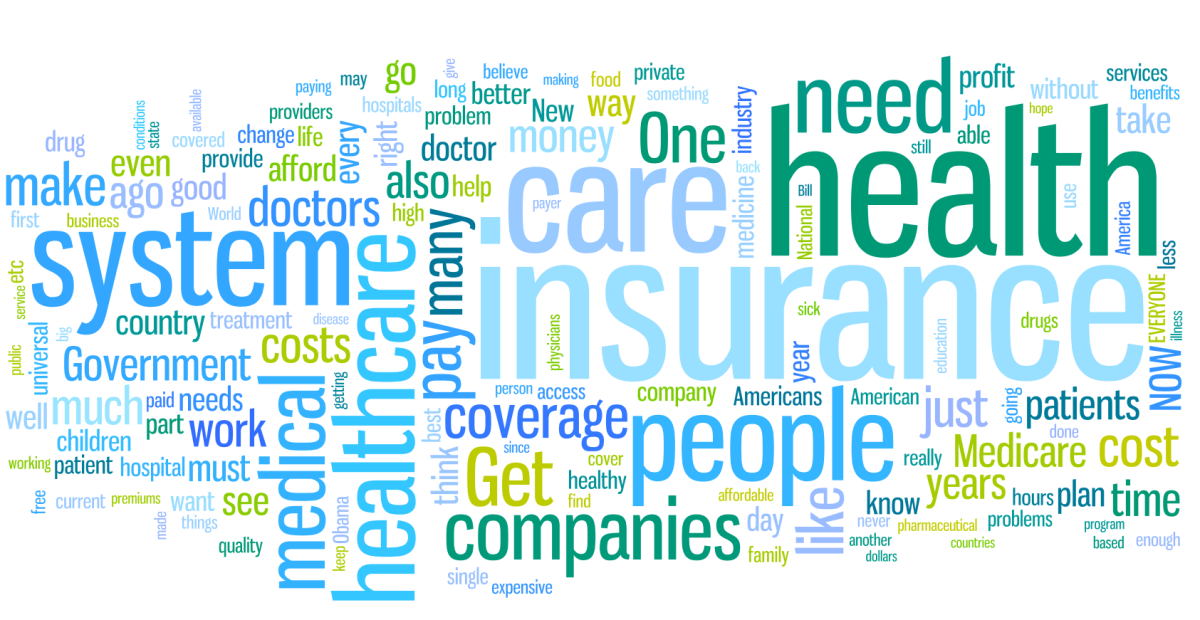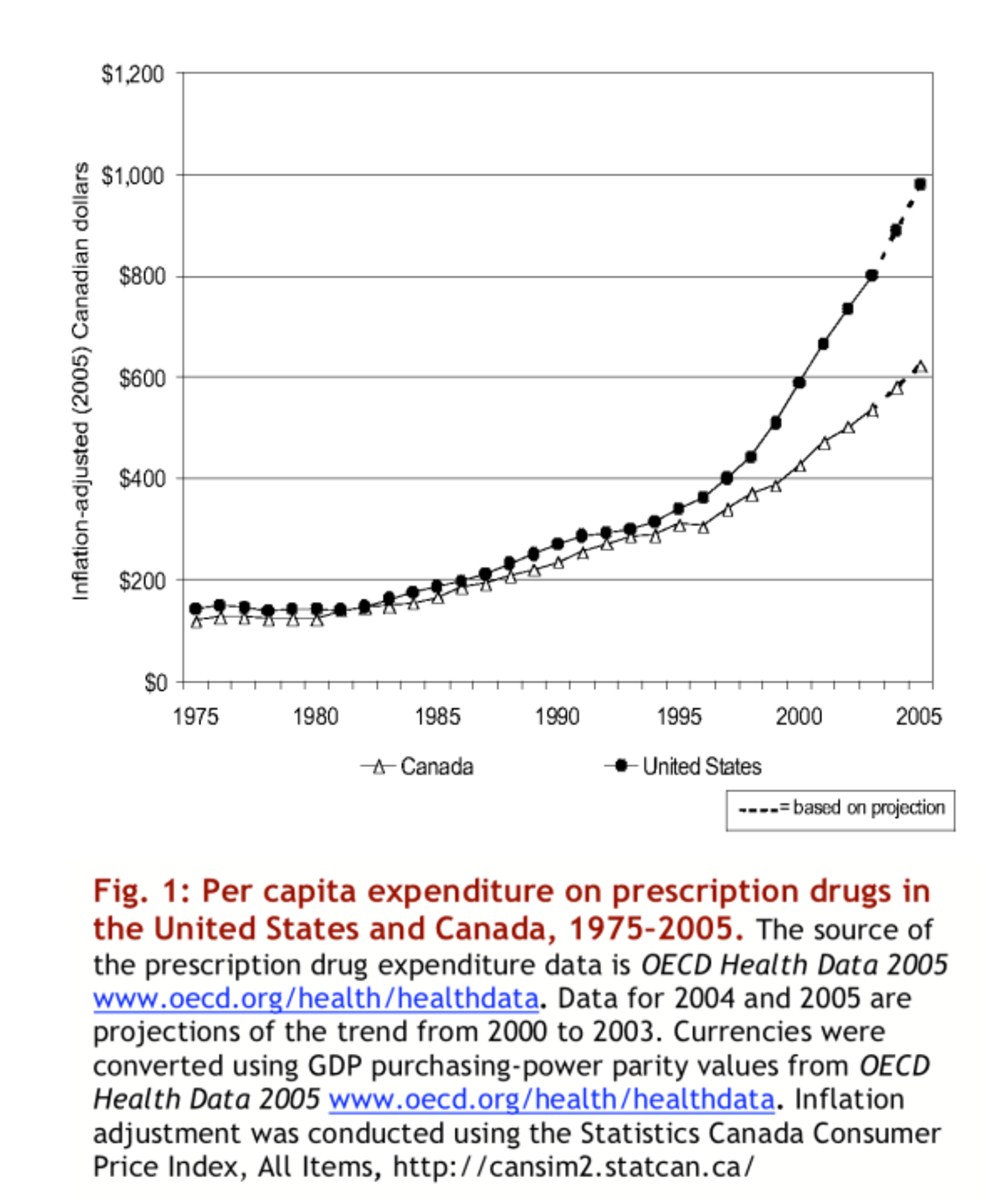From a patient's perspective - how the National Health Service actually works in practice
Introduction
If you aren't from the UK, it might be hard to imagine how the system actually works. Do you just rock up at any doctor or hospital when you feel like it? What are the criteria? What's it like being an NHS patient?
The "patient's perspective" in question is mine - I was born and brought up in London, have parents, sisters, a brother, a partner and a 3 year old son who are all ordinarily resident in the UK and therefore NHS patients.
This article looks at how the National Health Service really works in the United Kingdom - specifically, in England. The NHS is split into four parts, for England, Wales, Scotland, and Northern Ireland. The differences aren't great, but there are some minor variations.
This hub follows on from two others, the first is called, The National Health Service in the UK: who pays, and who is covered, and details how the NHS was founded in 1948, who is covered by the system, and how much it all costs.
The second, What the National Health Service (NHS) in the UK covers, and what costs patients extra is about what patients pay for medical care, dentistry, and optician's treatment, under the NHS.

- NHS Choices Homepage - Your health, your choices
The front page for the main National Health Service website

Accessing the NHS system - the General Pracitioner
Everyone with a right to National Health Service coverage gets an NHS number. This is allocated to you at birth (if you are born in the UK) or when you take up permanent, lawful residence here, if that comes later.
This number follows you around from doctor to hospital, and keeps your records together. A person is also allocated a National Health Service Card, but these aren't terribly important - I can't remember when I last needed mine, but it can't have been for a while as it's still in my mother's "important documents" file at my parents' home.
The General Practitioner is the gateway to the NHS' medical system. In order to access treatment (other than emergency treatment) you need to be registered with a GP's surgery. There are a lot of them, and they generally cover a small geographic area. An individual patient in a densely-populated area might have the option of registering at several different surgeries.
A GP's surgery is, usually, several doctors practising together. My GP's clinic has 8 GPs based there.
Becoming a GP takes some time - after finishing medical education, a doctor works in a hospital for a number of years before doing GP training.
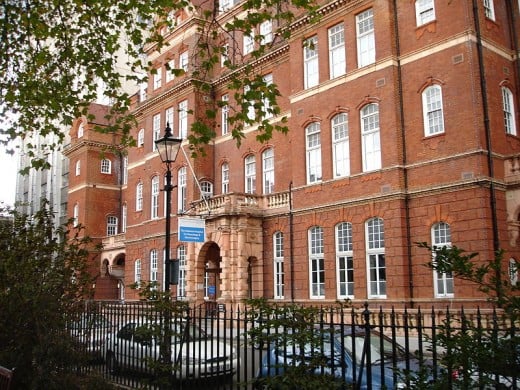
When I see an NHS GP, and making appointments
Most of the time, I'm perfectly healthy when I visit the GP. Sometimes it might be for booster injections for things such a tetanus or polio.
There are also regularly-scheduled screening programmes, such as smear tests (every 3 years), and breast mammograms for older women, for example. Every 3 months, in order to renew a (free) contraceptive prescription, I need to have my blood pressure and weight checked.
With routine appointments such as these, I usually book them a week or two ahead, as then I can choose exactly what time of day will suit me best, and book to see a particular GP if that matters (which it doesn't, to me, but it matters a lot for some people). My GP's surgery has appointments from 8.30am to 7.30pm on weekdays, and on Saturday mornings, for routine matters.
If I am unwell, with (say) an ear infection, or a nasty cough, I obviously don't make an appointment weeks ahead. Instead, I telephone the surgery in the morning, from 8.30am, and a doctor then rings me back to see what is wrong, and if necessary to book an appointment for me that day. With these last-minute appointments, there is much less choice of exact time and which doctors are available.
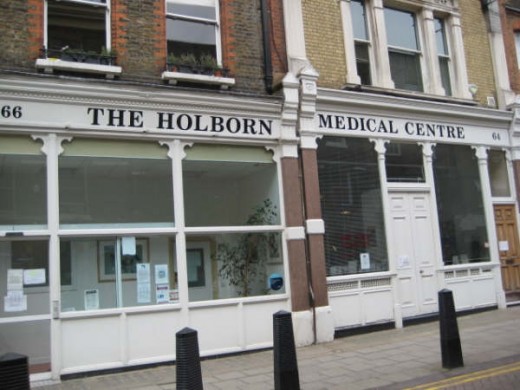
Out of hours GP services
When the surgery is closed, there is a 24 hour, 7 day a week number to contact the on-call GP. Consultations can be made over the phone, and the GP might make an out-of-hours house call, or direct you to go to Accident and Emergency at the hospital (also known as Casualty), or might suggest you go the surgery the following day.
I've only had to ring the out-of-hours number once, when my darling then two-year-old son proved that childproof caps on medicine bottles are not childproof, and took a big swig of Calpol (paracetamol liquid for babies). I rang the GP, who looked up toxicity and doses, then rang me back and told me that the dose wasn't something to worry about.
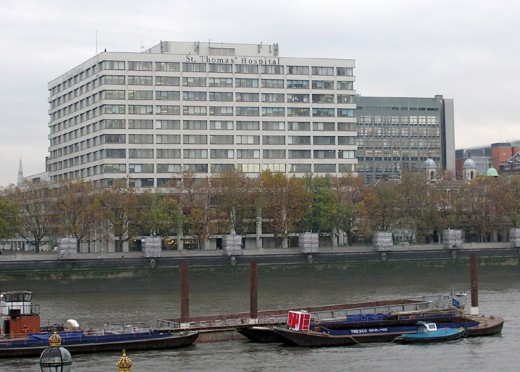
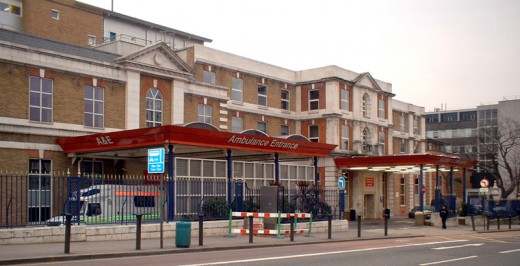
Referral to a hospital doctor or clinic
If the GP thinks it is necessary, he can either refer you to a specific specialist doctor at the hospital, or send you to a clinic at the hospital. You can't go directly to a specialist hospital doctor on the National Health Service, the GP has to refer you.
Depending on what type of problem it is, you will either be told to go home and await an appointment letter, or given a letter there and then and sent off to the relevant clinic with it.
My son suffered from horrible reflux as a newborn baby, and when we took him to the GP when he was about 5 weeks old, the GP reckoned he was dehydrated. We were sent to a paediatric clinic at the nearest tertiary-level hospital, where Isaac was seen firstly by a junior doctor, then a consultant (the most senior level) and as a result of those examinations, he was admitted to the paediatric ward for 3 days to be put on a drip and given various ultrasound scans, blood tests, and other nasty procedures.
The children's wards have small rooms attached, so that a parent or guardian can sleep in the hospital overnight and be near the child.
Once referred to a specialist, you might well get further appointments and tests, if necessary, made directly with the hospital. You don't need to be referred each time. So Isaac saw a paediatrician regularly at the hospital until he was over the worst of the reflux, at which point he was discharged back to the GP's care.
Any notes, tests, examinations and so forth are copied to the GP, so your medical file at the GP is a complete health history.

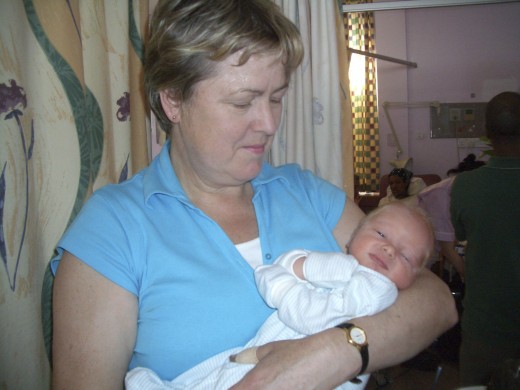
Midwives, ante-natal care and maternity
How this is organised will depend on the Local Health Authority. In a lot of cases, community midwives (those who do routine pre and post pregnancy care) are based at a GP's surgery. In other cases, they hold a separate clinic several days a week.
Pregnancy care is organised through the midwife. It consists of a long (2-3 hour) booking-in appointment early in pregnancy, where health histories of the woman, her partner, and her close family are taken, blood tests organised, height and weight checked, and a care plan devised.
After that, you see a midwife approximately 10 times through the pregnancy, more frequently later on, to check the baby's movement, heart-beat and size, the mother's general health, and to check the mother's blood pressure, sugar and protein levels. At any time, the midwife can refer a woman to the ante-natal unit at the hospital, if she thinks that is necessary.
In addition, in a normal, healthy pregnancy, there are ultrasound scans at about 12 and 20 weeks, and an appointment with the doctor at the ante-natal clinic at about 30 weeks. If the mother has health or pregnancy problems, she will spend a lot more time with the midwife and the ante-natal clinic.
The National Health Service also runs ante-natal classes, and tours of the maternity and neo-natal wards, so that the mother can choose between natural childbirth (midwife-led care) and more medical childbirth (doctor-led care) and which hospital she wants to give birth in.
It's also possible to have an NHS home birth, where two midwives come to the mother's home when she is in labour.
My son and I were discharged from hospital when he was 3 days old. A community midwife visited us at home every day for a week, then every other day for another week.
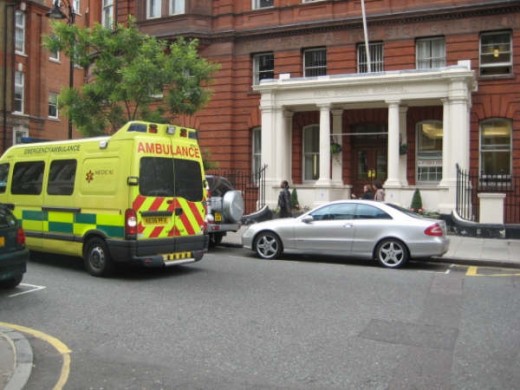
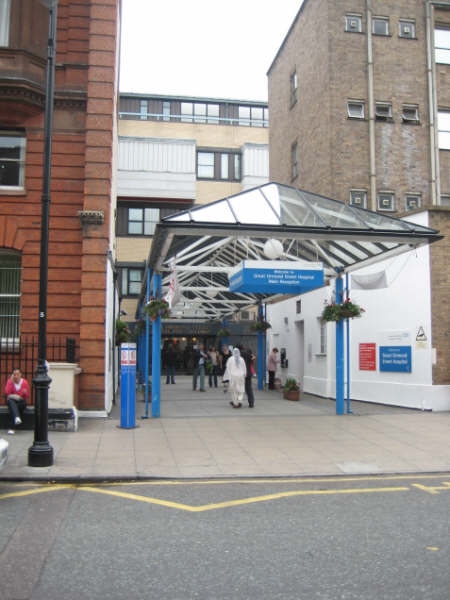
Health visitors
Each child is assigned to a Health Visitor, or team of health visitors, from birth.
The first visit at least (and often subsequent ones, it depends on the way the clinic runs) are at the baby's home, when he is a few days old.
Health visitors run clinics, and a mother can attend with her baby or child as often as she wants.
Health visitors measure and weigh children and babies, and give advice on breast feeding, bottle feeding, sleeping, tantrums, behaviour, all the rest of it, as and when the mother requests it.
The health visitors' clinic is also where a baby and child has regular developmental checks with a paediatrician, checking all sorts of things from fine motor movement through hearing to speech, as appropriate at different ages.
Isaac was offered developmental checks at 6 weeks, 3, 6, 9, 12, and 18 months, and 2 and 3 years old. He has another upcoming at 4 years old.
Other health professionals
There are lots of other health professionals, often attached to GP's surgeries, who deal with people in the community. They include Community Psychiatric Nurses, who offer support to the mentally ill, and District Nurses, who do home visits for things such as changing dressings.




